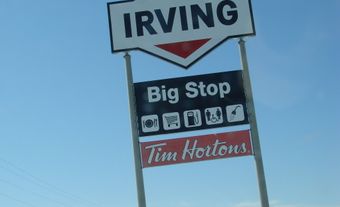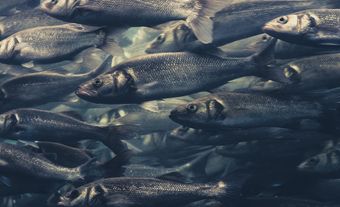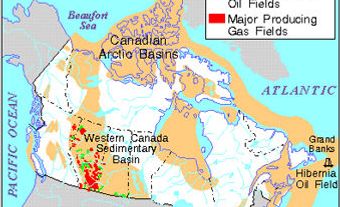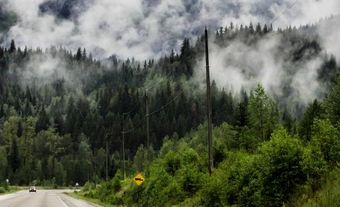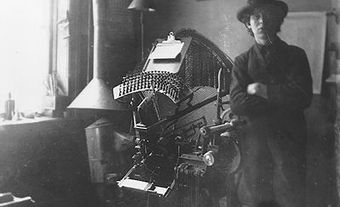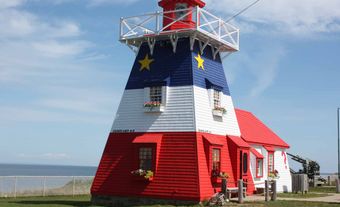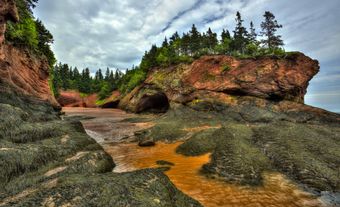Companies owned by New Brunswick’s Irving family dominate the province’s natural resource industries, as well as its media, engineering and construction industries. The first Irving business was a sawmill purchased in 1881. The family now owns many companies that supply each other from different steps in the chain of production. These companies largely fall under four umbrellas: J.D. Irving Limited (whose many segments include forestry, food, construction and transportation), Brunswick News (newspapers), Irving Oil (oil refining and marketing) and Ocean Capital Holdings (real estate, radio, construction and materials). The Irving family owns Canada’s largest oil refinery, is one of the five largest landowners in North America, and employs 1 in 12 people in New Brunswick. It is one of the wealthiest families in Canada.

Founding
The Irving business dynasty began with James Dergavel (J.D.) Irving (1860–1933), the grandson of Scottish immigrants. In 1881, he bought a sawmill in Bouctouche, New Brunswick. He also ran a general store and expanded his business into other industries such as farming and gristmilling. J.D. Irving’s sawmill became the basis for J.D. Irving Ltd. (JDI), which includes forestry and forest products among its many segments.
J.D. Irving’s youngest son, Kenneth Colin (K.C.) (1899–1992), turned JDI into a multi-billion-dollar empire with dozens of subsidiaries. In 1924, after a dispute with Imperial Oil, K.C. Irving created Primrose Oil. In 1928, he renamed the company Irving Oil, moved to Saint John and built a five-storey garage to serve as Irving Oil’s home.
In 1972, to avoid Canadian taxes, K.C. Irving moved his businesses to a trust held in Bermuda. The New Brunswick government gave Irving Oil a tax break on its oil storage tanks in Saint John after the global oil crisis of 1979. The deal remains in place decades after the crisis ended.
Brunswick News, the Irvings’ media company, was formed in 1998 of smaller companies that were previously divided among family members. Brunswick News owns most newspapers in the province.
Ocean Capital Holdings was founded in 2004. It owns real estate, radio, construction and materials companies.
Business Model
The Irving companies operate in a vertically integrated system, meaning they hold different but complementary spots in the chain of production. K.C. Irving built his business empire on this principle. He ran a pulp and paper mill, a veneers factory, a trucking company, and construction and steel companies. When one of these entities needed a resource, he would either build or buy a company to supply it. The trees that went to the sawmill eventually went to the pulp mill, which created paper, which his newspapers were later printed on. Irving ships or rail cars carried the oil to the refinery, and the refined oil went into the family’s gas stations across the province.

Succession
K.C. Irving’s three sons eventually divided up the businesses among themselves. J.K. Irving (1928-2024) oversaw forestry and media, Arthur Irving (1930-2024) headed up Irving Oil, and the youngest son, John Irving (a.k.a. Jack, born 1932-2010), ran the engineering, construction and steel sides while also owning a stake in the oil business.
J.K. Irving’s sons Jim and Robert Irving are the co-CEOs of J.D. Irving Limited. Jack Irving’s son John K. F. Irving took over the family’s real estate holdings from his father. In 2018, the Arthur Irving Family Trust bought out Jack Irving’s family stake in Irving Oil. In 2023, Arthur Irving became chairman emeritus of the company, while his daughter Sarah Irving, left the position of executive vice-president. These leadership changes followed a June 2023 statement in which Irving Oil announced that the company was undergoing a “strategic review.”
K.C. Irving was adamant that his companies remain private.
Controversy
Environmental controversy has surrounded the Irving group of companies over the years. Provincial legislation passed in 1951 allowed K.C. Irving to pour waste from the pulp mill into the Saint John River despite a ban on mill pollution in the federal Fisheries Act. In November 2018, Irving Pulp & Paper was fined $3.5 million for pollution and added to the federal government’s Environmental Offenders Registry.

Media Ownership
Brunswick News controls 90 per cent of English-language newspaper circulation in New Brunswick. It owns the three major dailies in the region — the province-wide Telegraph Journal, Moncton’s Times & Transcript and Fredericton’s Daily Gleaner — in addition to more than a dozen weekly publications.
Acadia Broadcasting, a subsidiary of Ocean Capital Holdings, owns and operates radio stations in New Brunswick and Ontario.
The concentration of media ownership among the Irvings has been the focus of court action and a CRTC investigation. Their near monopoly continues to inspire allegations of collusion and biased reporting. In 1974, K.C. Irving Limited and associated companies were convicted under the merger and monopoly provisions of the Combines Investigation Act (see Competition Policy). Members of the Irving family had acquired a controlling interest in all five of New Brunswick’s English-language newspapers. An appeal in 1975 overturned the conviction, and the Supreme Court of Canada ultimately upheld the appeal decision (see also Newspapers in Canada: 1900–1990s).
In January 1987, the CRTC reversed a 1982 ruling that prevented Acadia Broadcasting’s precursor, New Brunswick Broadcasting Co., from buying more broadcasting companies. The CRTC granted the company licences for new TV stations in Saint John, Fredericton, Moncton and Halifax. (See also Media Ownership.)

 Share on Facebook
Share on Facebook Share on X
Share on X Share by Email
Share by Email Share on Google Classroom
Share on Google Classroom
